In response to a question posed by Graeme Downie, Labour MP for Dunfermline and Dollar, about the potential locations for the build and assembly of Fleet Solid Support (FSS) ships, the Ministry of Defence provided insight into the ongoing plans.
Luke Pollard, Parliamentary Under-Secretary for the Ministry of Defence, confirmed that on current plans, the ships will still be constructed across multiple locations, centred on Belfast.
He noted that blocks of the three FSS ships are expected to be built in Harland & Wolff shipyards in Belfast and Appledore in Devon, as well as Navantia’s shipyard in Cadiz, Spain. Pollard also confirmed that assembly and integration of the vessels will take place in Belfast.
Pollard assured that the delivery of the FSS ships remains a top priority for the Ministry, amidst wider discussions about the future of Harland & Wolff and its financial status.
“Successful delivery of the Fleet Solid Support (FSS) Ships project remains a priority. On current plans, the three FSS ships will be assembled from blocks which are expected to be built in Harland & Wolff (H&W) shipyards in Belfast and Appledore in Devon and Navantia’s shipyard in Cadiz, Spain. Assembly and integration of the ships is planned to take place in Belfast.
Following a review of H&W’s financial situation, the Government is clear that the market is best placed to address the challenges the company is facing. We continue to work extensively with all parties to find an outcome for the company that continues to deliver shipbuilding and manufacturing in the UK.”
Ongoing Engagement
Recent updates regarding the future of Harland & Wolff’s shipyard in Belfast highlight significant engagement between the Ministry of Defence and Navantia UK, the prime contractor for the FSS ships. Despite the financial struggles facing the Belfast yard, the government continues to explore solutions aimed at securing both jobs and shipbuilding capability.
Harland & Wolff, renowned for constructing the Titanic, has encountered financial difficulties in recent years. This led to its entrance into administration in 2024, raising concerns over the future of its workforce and its ability to fulfill obligations for naval contracts like the FSS. However, there has been a concerted effort to safeguard operations, and discussions between the MoD and the Chancellor of the Exchequer are ongoing.
These efforts also coincide with the Defence Equipment and Support (DE&S) vision for the Fleet Solid Support programme, which will deliver ships designed to resupply the Royal Navy at sea, while offering logistical and operational support on various missions. Designed to be energy-efficient and adaptable for future Carbon Zero goals, these ships will have a key role in supporting the Royal Navy’s global operations well into the future.
Fleet Solid Support
According to DE&S, Fleet Solid Support (FSS) will provide support ships designed to deliver crucial munitions, supplies and provisions to the Royal Navy while at sea.
“They will provide logistical and operational support, including counter-piracy and counter-terrorism missions and will collaborate with allies on operations.Each ship will have a core RFA crew of 101, with accommodation provided for an additional 80 personnel operating helicopters, boats, or performing other roles when required.
The ships are designed with an emphasis on minimising carbon emissions, equipped with energy-efficient technologies to decrease power consumption and are adaptable to reduce their carbon footprint by using low-carbon, non-fossil fuels, and future sustainable energy sources. They are also designed to be adaptable from the outset to achieve a Carbon Zero status by the end of their 30-year operational lifespan.
The production of the first FSS is expected to begin in 2025 across three shipyards and all three ships will enter service after final equipment fits and military trials, by 2032.”


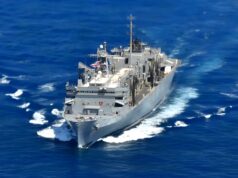
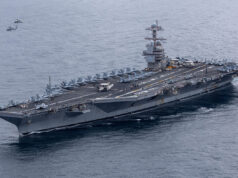
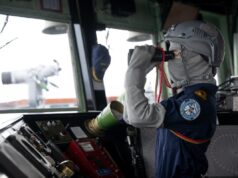
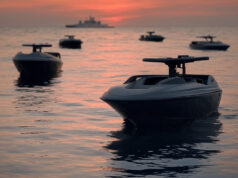
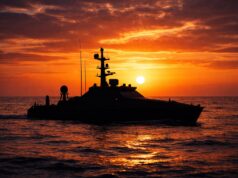

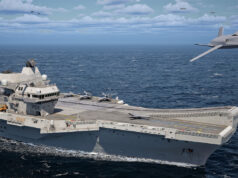

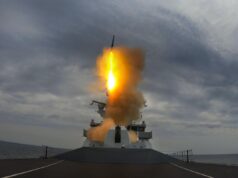
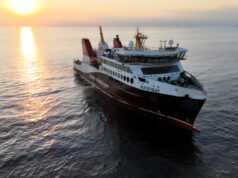

When? talked about, thought about, but not yet started like every thing else ifs/buts/may be’s.
Fair question but there is more than one party required to make this happen so ….
I think the Government will need to make and receive some guarantees. So probably not too long.
hope so, does seem to be a lot messing about and time wasting to get them started. pity
Thought I read that it’s planned to start build next year, thought I read that here, though numerous articles on it presently. Is that not correct?
I understand that is the plan, though the Harland and Wolf issue may up set that a bit. Not sure they will be about in a year unless the Government step in, again.
RFA pay and conditions (and recruitment) need to be properly addressed first. If their grievances continue to be ignored then any talk of shipbuilding is just p****** in the wind
I don’t think we need to put anything in any particular order.
The RFA are effectively as necessary as the RN. Suggest we simply join them up. Review the terms and conditions once and then index link them. Simples.
It’s not that simple. RFA Sailors more than likely won’t want to or aren’t qualified to join the Royal Navy
Something like this would probably require an act of parliament and would allow RFA Sailors automatic entry. The RFA would just be under the umbrella of the RN. The objective would be to allow all the positives of being in the RN whilst still enabling the entry requirement of the RFA.
I mean seeing as they won’t pay them marginally more to keep the RFA going, I don’t think they’ll wany to increase Royal Navy numbers and have to pay them even higher wages.
In the grand scheme of things increasing pay by a proper amount and then index linking it would not cost that much money. The problem for the conservative Government was more that other civilian parts of Government which are on similar pay scales would see that and then demand more money and that would feed inflation. However Labour’s seem to have a different approach (which might backfire) whereby they seem happy to take inflationary strategies (eg. Junior Doctors wage increase) so anything could happen.
This sort of thing requires politicians who can think out of the box. The question is do we have any of those at this time.
Madness.
Nationalize H&W. Invest in it. Give continuous RN orders. Give better pay and conditions for RFA.
😂 Throw money at it in other words. Probably the most expensive and inefficient way of dealing with a minor problem. Are you a cabinet minister by any chance?
I’m no screaming leftie and I have always argued on here for the UK to develop and nurture its own sovereign strategic capabilities and assets. H&W and more so the infrastructure and IP, are such a strategic asset in my view. For example Sheffield Forgemasters are now owned by the State and the UK can at least produce gun barrels again.
It needs a big vision, a steady drip of orders, and a realisation that the globalised market is sometimes not able to provide and not always appropriate when it comes to UK strategic assets.
The market is perfectly capable of providing what the UK requires without nationalising anything. The problem comes when there is no demand – it doesn’t matter if the industry is nationalised or not when there is no demand the industry colapses. Currently we have high demand and are simply trying to re-invigorate the old yards. Great. As long as the Government guarantee the orders will keep coming everything will be fine.
The last yard in the UK that was nationalised cost the Scottish taxpayer millions and was bailed out with BAe, a private company, giving it work. It’s still not in a position to deliver a working vessel years after nationalisation.
Well at least the Republic will have a nice new capability financed by uk tax payers in the future.
Nah, if the U.K. can’t find enough business to keep it viable, the Republic never would.
A “top priority”
Is it me or have they been talking about this for the best part of a decade?
With not so much as a single bit of work even started.
While selling of or scrapping 3 of the 4 FSS we had and letting the 4th become unusable.
MoD could have ordered these from S Korea years ago and I suggest they would have been well on the way by now.
Meantime, the QEC Group is hamstrung.
So no, HMG, I call bullshit on you.
I agree, at this point it is much more important we get the ships than domestic build. We should have bid these along with the Tides, no one batted an eye lid about tankers made in South Korea and Solid Store Ships would have been no different.
I remember supporting such a buy years ago here and getting shouted down by those who support UK industry orders above all else it seems.
So my suggestion will not be without its critics.
We then had the merry go round as to whether they are “warships” or not, and the criticism of the Conservatives that as they were not warships they might be built abroad.
There was meltdown here.
I wish they’d got on and done exactly that.
Anyway, we still, after a decade, have not started build.
As I often say, HMG make industry and jobs a priority over the military getting actual useable kit in the right quantities, at the right price, at the right time.
It is not always helpful.
Morning DM, as much as I agree with you I can see the advatage of getting H&W up and working. With BAE Glagow building high end ASW frigates and AAW destroyers, Babcock building GP frigates and hopefully the Multi Role Frigate T32s that would leave H&W for RFA and the 3-6 MRSS possibly again a BMT design Ellida which look like they will be about 16-20,000 tons each. We will also need to start thinking about the replacement for the Points and by the 2040s start looking at replacemtents for the Tides.
So H&W could have a full order book up to the 2050s with 16-20 large support ships to be built. This does not include any Amphibious ships such as Albion/ Ocean replacements that could also be built.
Morning Ron.
That all sounds great if HMG actually committed to a long term, cross party, strategic plan. And stuck to it.
We know they don’t and have reputation for being utterly clueless.
So we have this boom or bust, feast or famine cycle. With nothing progressing without the usual disorder.
I agree with ABC, nationalise the yard, invest, commit.
But for future vessels.
The military and RFA should not be the middle man inbetween their incompetence.
Only way that would happen is if the defence budget and procurement is removed from the revolving control of the political party in power. As much as we all like to blame the current or previous party for anything and everything the way we purchase defence equipment will be forever compromised by the way our politics work.
I thought there was much anger at the thought these were being built in Spain as so it was presented in the media. If this was the case would have thought build could have already started there by now, or large blocks of it at least.
We have no problem having aircraft or military equipment built overseas or by foreign companies so why do we have such a problem with ships, particularly support ships that are generally not comparatively sophistcated.. As nation we spend so much time on costly dithering it’s a wonder we get anything built.
Discussion stretches back to the Brown government.
Bob Ainsworth [Minister for the Armed Forces], Hansard Jan 2008
Absolutely agree we should have gone with Daewoo, as an immediate follow on order after the Tides. They would already be in service and this would be a non-discussion.
The originally published MARS schedule (2007) was as follows:
Five fleet tankers for delivery between 2011 and 2016.
A single fleet tanker (CVF/carrier strike replenisher) for delivery in 2016
Two fleet solid-support ships for delivery in 2017 and 2019.
Three joint sea-based logistics vessels for delivery in 2018, 2020 and 2021
This was pared through austerity and using the excuse of gapped carrier capability to the four Tide class with the rest kicked down the road. However, I believe the Tides as delivered were larger than originally envisaged.
Oh God, it is worse than I remember.
Carbon zero goals. Hahaha, we are so dead.
I realise that I’m conflating two separate issues.
However, the way the Spanish continue to mess the Gibraltar Government about. Ought to preclude them from any contracts more sophisticated than making paper clips.
The interference is endless. Most recently they claim that a land reclamation
project infringes their sovereignty. As does a water reclamation project.
And any day with a y in it is likely to see the Guardia Civil sail merrily around
Gibraltar Sovereign Waters. I’ll never forget when a US SSN sailed into Gibraltar
Naval Base, it was harassed by the usual suspects. An SSN for God’s sake.
I realise also, that a lot of this heat is down to internal Spanish politics.
However, sending any work abroad when we have British yards desperate for work is
IMO unforgivable.
HMG ought to have given the work to H&W. Which would be an industrial boost that a stagnating local economy needs. To allow it to generate firm orders to follow. Perhaps from the Americans, who delivered very little of what was promised apart from photo ops for the Clintons. Economic progress here in N.I. in the face of RoI intransigence on economic issues, plus underdelivering by the Yanks, would go a very long way towards maintaining the pseudo peace that we have currently.
I’ve never agreed to the rfa being used for counter piracy/terrorism duties .I know they have rm,rn detachments ,but this is a job for a 23 or 45 etc.keep the rfa doing what it does well supplying warships .
Are we waiting for SDSR25 for a final answer?
I agree with others on here, a 30 year build plan should be undertaken for the RFA, it’s still big enough to have a steady drum beat of orders, with new designs commissioned and into build when the vessel class it’s due to replace reaches 20 years of age.
That would of course require ‘joined up’ thinking!
If we can’t do that, just get them ordered by whoever can build them…
OK so I was under the impression that the last government redesignated fss as warships so they had to be built in the uk and now it seems some modules will be built in cadiz